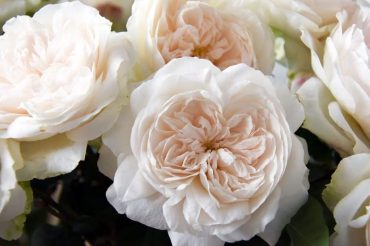Fragrance might not be the first thing on your mind when you’re comparing pictures of roses on a website or on social media. But when you encounter fragrant roses as part of a real-life experience, the fragrance factor is intoxicating and unforgettable.

Consider Constance™ (Austruss), pictured here, with her deliciously fruity scent of apple and pear.
What is it about fragrance that stirs emotions so powerfully? Part of the answer lies in the nature of our sense of smell.

Smells of all kinds reach us via receptor cells that line the insides of our noses—as many as 10 million of them. These long nerve cells convey signals directly to a relatively primitive part of the brain called the olfactory bulb—a rounded structure that lies directly above and behind the nose.

In fact, smell is the only one of our five senses in which sensation is communicated directly to the brain—and to a part of the brain strongly associated with emotions and memories. Think of the important role that smell plays in the lives of other animals—maybe your dog or cat. For humans, likewise, it triggers an instinctive response. When we succumb to the power of fragrance, we allow ourselves to be stimulated in a primal way, unmediated by conscious thought.

Do certain smells evoke memories for you? If so, you’re not alone. And memories can also be created, and later revived, when you make fragrance part of a significant event, like a wedding!
Of course, we also experience smell with the analytic, self-aware part of our brain, the frontal cortex. For connoisseurs of rose fragrance, the complexity of scents ranging from musk and clove to apricot and raspberry is a source of subtle and sophisticated pleasure—the subject of our next article in this series.
One reason rose fragrance brings with it a sense of well-being is simply because it encourages the person enjoying it to breathe in slowly and deeply. The next time you have the opportunity to smell a fragrant rose, allow yourself to linger over the “finish” of the fragrance. You’ll be glad you did!

